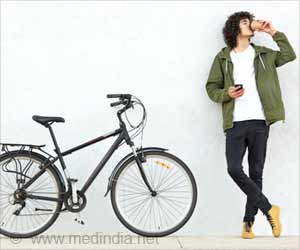- Vegans who do resistance training may have stronger bones than others
- Vegans and meat eaters who do resistance training have similar bone structure
- Resistance training exercises, include, using machines, free weights, or bodyweight resistance
Resistance Training for Vegans: Is it Beneficial?
The authors compared data from 43 men and women on a plant-based diet for at least five years and 45 men and women on an omnivore diet for at least five years. Omnivores eat meat as well as plant-based foods.The researchers found vegan participants who did resistance training exercises such as using machines, free weights, or bodyweight resistance exercises at least once a week had stronger bones than those who did not. They also found vegans and omnivores who engaged in resistance training had similar bone structures.
“People who adhere to a vegan lifestyle should perform resistance training regularly to preserve bone strength,” Muschitz said.
Other authors of this study include Robert Wakolbinger-Habel of the Vienna Healthcare Group and the Medical University of Vienna in Vienna, Austria; Matthias Reinweber of the Vienna Healthcare Group; Jürgen König, Daniel König, and Rochus Pokan of the University of Vienna in Vienna, Austria; and Peter Pietschmann of the Medical University of Vienna.










